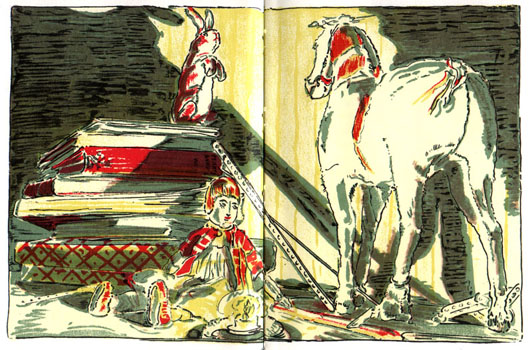This morning, while jogging, I listened to a podcast from PRI's "To the Best of Our Knowledge", in which Nicholas Carr was interviewed about his work and recent book, The Shallows: What the Internet is Doing to Our Brains, about the impact of the Information Highway -- the Internet and other high-speed information technology -- on our brains and, subsequently, on our behaviour and cultural development.
I believe my young friend's relational challenges and Mr. Carr's findings are related. How so? Mr. Carr posits that the more and more one uses the Internet, social media, etc., the more one's brain adapts to the influx of information, which for humans is, apparently, a very pleasurable experience -- so pleasurable, in fact, that one becomes hooked on the stimuli, the colour, the ongoing distraction of incoming messages. The down-side to this is that one becomes increasingly easily distracted, and one's attention span shortens (not to mention one's memory). If one doesn't take breaks for periods of silence, solitude, contemplation, reflection and deep thought, one begins to live one's life in The Shallows.
Anyone who's been in a tidal pool or the shallow waters of a lake knows that life is very pleasurable there. The water is warmer than it is in the deeps. There are colourful plants and bright little fish to catch one's eye. One can simply lie back and relax without fear of nastier, more dangerous creatures that may inhabit deeper water. In the unknown depths, there be monsters.
Life in The Shallows can be like that -- warm, pretty, colourful, with little or no risk involved. Relationships in the shallows are based on light conversation, lots of activity that involves little interpersonal interaction (going to films, the theatre, sports events, using social media and the like). Little civilities which our culture has tossed aside, thinking them stuffy and old-fashioned, are missing in The Shallows. It's not important to RSVP to an invitation -- simply show up, or not. It's not important to send a note or make a call of thanks -- just cashing that birthday cheque is enough to let Mom or Auntie or Grandma know you received her gift. It's okay to forego asking permission in preference to asking forgiveness later. Holding doors? Surrendering one's seat? Turning off one's cell phone during church/school/theatre/film/dining with friends and/or family? Giving to charity without broadcasting one's largess? None of this is necessary; when one lives in The Shallows, one lives unto oneself.
This is precisely why in our culture, long-term relationships are such a challenge -- and becoming more-so. This affects both life partnerships and life-long friendships. It's no wonder that when such relationships are discovered, they are touted in the media as remarkable achievements. Such relationships require not only the willingness to set aside one's wants in favour of the needs of the relationship, but also the ability to accept monotony with contentment. Long-term relationships are not always bright, shiny, warm, fuzzy, full of new adventures. After a time, long-time friendships and marriages/partnerships go through periods of "same-old, same-old" on the way to something deeper and richer that makes staying the course so very worthwhile.
If one is hooked on novelty -- found largely in and through our fast-paced information-full technological culture -- one will easily tire of relationships that are meant to last longer than five minutes. One won't want to risk really getting to know another, accepting that other as he/she is, learning from another, giving to and receiving from another over the course of a lifetime. One will lose the capacity to really care. One will become immune to tragedy -- and to simplicity, beauty and joy in the world around us.
Thus there is no easy answer for my young friend. He will need to look deep within himself to be sure that he wants as much to receive from and care about another as he does to share with another his deepest longings and fears, for long-term relationships are two-way streets. Once he has determined he is able to both receive and give in return, he will be challenged to find someone willing to swim with him out of The Shallows into the deeper waters of life-long love and friendship.
I would not discourage him from making the choice, to test his courage in the colder, more turbulent currents of the heart. I learned to swim in the Deep End years ago, and I can attest to the fact that there, the water is fine indeed.
"Generally, by the time you are Real,
most of your hair has been loved off,
and your eyes drop out
and you get loose in the joints and very shabby.
But these things don't matter at all,
because once you are Real you can't be ugly,
except to people who don't understand."
- Skin Horse
 |
| Skin Horse Tells His Story |

4 comments:
Margaret, ultimately important timing on this for me personally--thank you. Going unplugged, going low and listening to oneself and if not ignoring the rest of the world, at least filtering through *real* senses, rather than internet "connections" is REALLY important for artists!
Well written, Margaret. Being present with oneself in the moment allows us to be open and real with others in our lives.
I really enjoyed reading this post. I love the velveteen rabbit and the power in the words you quoted.
Being Real seems to only come when one becomes older and more experienced with life and others. Just like the velveteen rabbit said. Nice to hear those words quoted within the context of your entry. Well stated oh wise one.
Chimo,
Jennifer
Post a Comment